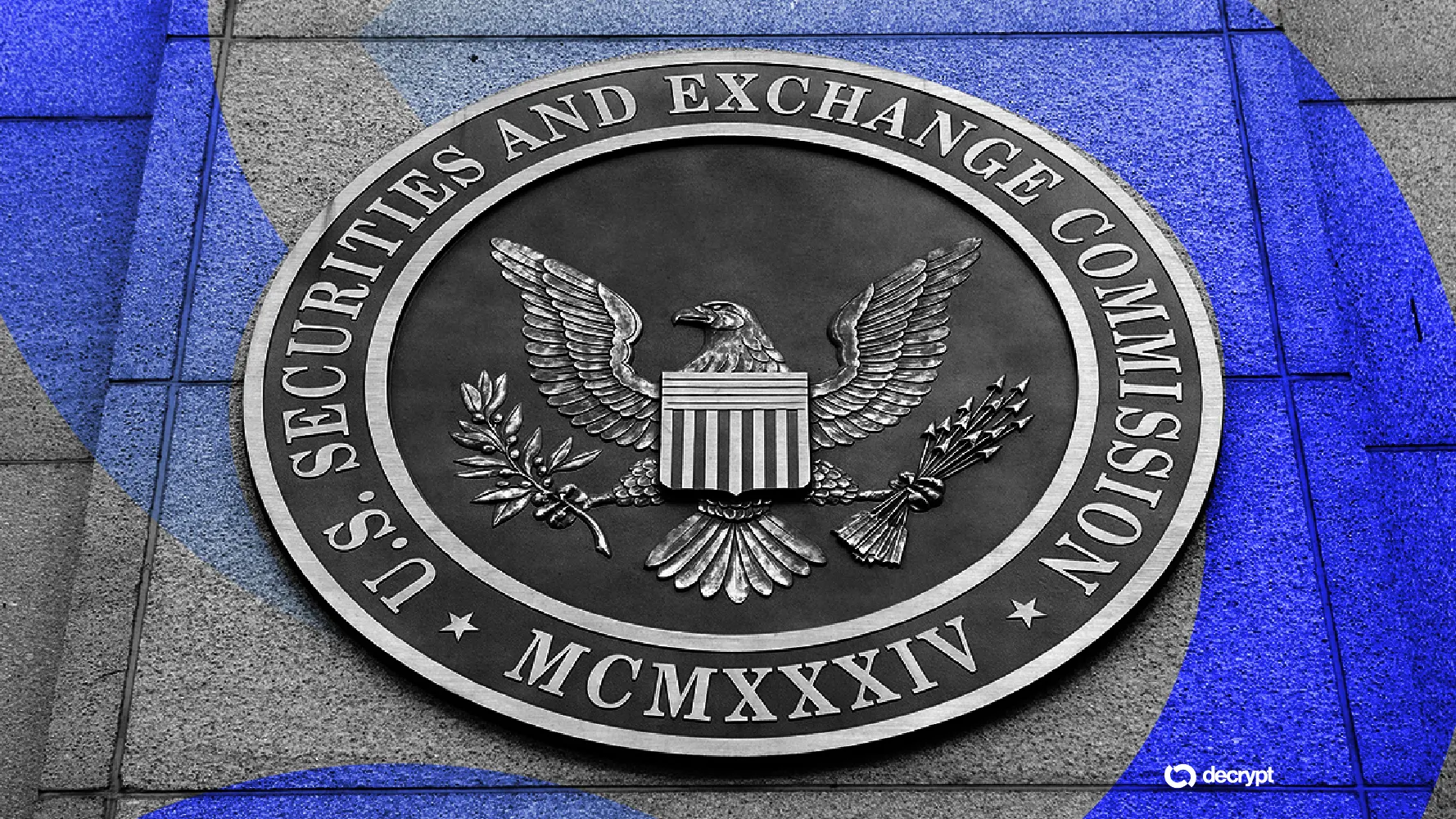Let me explain just how desperate a journalist @Reuters is to publish a negative story. The whole base of their story this morning, is that when users purchased BUSD (Paxos) from Binance, they were taken to a transaction page that had the term “deposit” on it. Users were making a…
— Patrick Hillmann (@PRHillmann) May 23, 2023
Coin Prices
BTC
$117,641.00
-1.85%ETH
$2,956.26
-1.65%XRP
$2.84
-2.60%BNB
$678.28
-2.24%SOL
$160.20
-3.06%USDC
$0.999894
-0.00%DOGE
$0.191653
-5.03%TRX
$0.30135
0.08%STETH
$2,947.19
-1.90%ADA
$0.716422
-5.77%HYPE
$47.52
-3.78%WBTC
$117,265.00
-1.95%XLM
$0.437677
-13.18%SUI
$3.87
2.17%WSTETH
$3,612.32
-0.11%LINK
$15.33
-3.77%HBAR
$0.231595
-8.68%BCH
$490.98
-3.48%AVAX
$20.64
-5.17%LEO
$9.01
-0.16%WEETH
$3,162.31
-1.74%SHIB
$0.00001286
-5.09%TON
$2.98
-1.03%WETH
$2,946.77
-1.90%LTC
$92.03
-4.08%USDS
$0.999846
0.00%BSC-USD
$1.001
0.14%WBT
$45.55
-1.42%XMR
$337.67
-1.60%DOT
$3.84
-6.57%CBBTC
$117,405.00
-2.27%USDE
$0.998469
-0.26%UNI
$8.75
0.41%BGB
$4.33
-3.14%PEPE
$0.00001198
-5.44%AAVE
$307.84
-2.96%TAO
$404.54
0.79%PI
$0.450744
-3.72%CRO
$0.103303
-3.37%APT
$4.84
-5.64%SUSDE
$1.18
0.01%NEAR
$2.51
-4.10%OKB
$47.31
-3.65%BUIDL
$1.00
0.00%ONDO
$0.890409
-3.91%ICP
$5.23
-6.60%JITOSOL
$194.02
-3.53%ETC
$18.05
-3.50%MNT
$0.721103
2.77%ALGO
$0.27768
-2.67%USD1
$1.00
0.04%KAS
$0.082791
-6.23%BONK
$0.00002715
-0.08%ENA
$0.326103
-7.42%ATOM
$4.46
-6.65%VET
$0.02366945
-6.52%POL
$0.221568
-6.81%PUMP
$0.00556833
2.52%SUSDS
$1.059
0.04%SEI
$0.341117
-1.01%ARB
$0.393622
-6.15%FTN
$4.51
0.39%RENDER
$3.66
-4.91%GT
$15.65
-1.46%PENGU
$0.02953765
2.61%TRUMP
$9.14
-5.70%WETH
$2,946.24
-1.94%FET
$0.685751
-6.96%WLD
$1.019
-5.01%LBTC
$117,170.00
-1.95%FIL
$2.48
-5.18%SKY
$0.076144
-3.55%QNT
$109.63
-8.15%BNSOL
$168.90
-3.78%JLP
$4.70
-1.53%KCS
$11.44
-0.18%USDTB
$0.999996
-0.01%FDUSD
$0.998906
-0.07%JUP
$0.480581
-7.80%RSETH
$3,094.30
-1.81%RETH
$3,359.54
-1.91%USDT0
$1.001
-0.01%SPX
$1.44
-11.90%TIA
$1.82
-6.37%NEXO
$1.29
-0.25%FARTCOIN
$1.25
-8.66%IP
$4.24
-2.84%XDC
$0.075981
-7.79%FLR
$0.017122
-0.71%INJ
$12.03
-5.74%STX
$0.76197
-7.25%OP
$0.641764
-4.64%SOLVBTC
$117,322.00
-1.99%METH
$3,163.76
-1.62%OSETH
$3,094.55
-2.06%S
$0.339631
-7.96%USDT
$1.00
-0.02%VIRTUAL
$1.61
-9.23%USDC
$1.00
0.11%EZETH
$3,111.13
-1.74%WIF
$0.978998
-4.58%IMX
$0.513362
-5.06%LSETH
$3,188.60
-1.70%CRV
$0.694854
1.97%GRT
$0.096058
-5.61%WBTC
$116,968.00
-2.18%PAXG
$3,356.26
0.21%CLBTC
$121,068.00
-1.60%SYRUPUSDC
$1.11
0.05%FLOKI
$0.00009447
-4.32%WBNB
$679.08
-1.97%KAIA
$0.148889
-5.38%PYUSD
$0.998789
-0.06%A
$0.53445
-3.68%IOTA
$0.213183
-6.05%JUPSOL
$179.37
-3.43%XAUT
$3,352.14
-0.04%TKX
$10.15
-11.41%CAKE
$2.33
-3.88%MSOL
$208.50
-3.59%THETA
$0.768413
-7.29%LDO
$0.840171
-2.32%GALA
$0.01659729
-7.16%JASMY
$0.01545763
-6.72%SAND
$0.298903
-6.34%RAY
$2.72
-4.79%ENS
$21.81
-3.26%USTB
$10.75
0.01%OUSG
$111.80
0.02%BTT
$0.0000007
1.88%ZEC
$42.37
-2.54%AERO
$0.795502
-6.11%USDX
$0.997976
-0.03%SAROS
$0.254716
-0.02%M
$0.402749
-32.22%SUPEROETH
$2,959.90
-1.42%PYTH
$0.114602
-6.36%XTZ
$0.622992
-4.15%CMETH
$3,154.47
-1.91%XCN
$0.01857664
7.29%PENDLE
$3.85
-3.89%USDY
$1.092
-0.30%WHYPE
$47.33
-4.23%JTO
$1.81
-8.30%CGETH.HASHKEY
$3,113.45
-0.74%TBTC
$117,415.00
-1.79%WETH
$2,956.54
-1.58%MOG
$0.00000154
-20.86%FLOW
$0.378641
-4.37%USDF
$0.999949
0.04%AB
$0.00870384
-0.71%XSOLVBTC
$117,789.00
-0.28%USD0
$0.997816
-0.01%WAL
$0.418279
0.54%MANA
$0.299456
-7.79%MORPHO
$1.79
-7.19%BTC.B
$117,374.00
-2.08%HNT
$2.93
-8.20%TEL
$0.00587461
10.17%CORE
$0.529585
-5.49%USDD
$0.999339
-0.09%RUNE
$1.51
-3.33%STHYPE
$47.36
-4.03%WETH
$2,945.39
-1.99%RLUSD
$0.999733
-0.02%BRETT
$0.051477
-10.57%BSV
$25.69
-3.52%CFX
$0.098983
-5.75%APE
$0.625394
-7.09%B
$0.495344
-0.75%TUSD
$0.998596
-0.02%DOGE
$0.190885
-5.62%STRK
$0.133302
-6.35%SYRUP
$0.442741
-15.34%1INCH
$0.337976
7.56%BDX
$0.065673
4.96%VENOM
$0.223312
0.71%ETHX
$3,132.76
-1.95%KAVA
$0.420533
-3.82%DEEP
$0.180792
-1.87%USDC.E
$0.999901
-0.00%RSR
$0.0076708
-6.67%NFT
$0.00000045
-0.50%AIOZ
$0.372525
-1.64%COMP
$47.20
-0.51%DYDX
$0.586784
-4.51%AR
$6.68
-5.58%NEO
$6.18
-4.38%CBETH
$3,258.13
-1.72%DEXE
$7.47
-1.14%EGLD
$14.89
-6.07%USYC
$1.093
-0.05%ETHFI
$1.088
-7.94%XEC
$0.00002057
-4.26%EBTC
$116,848.00
-2.47%USDB
$0.993104
-0.60%EIGEN
$1.27
-7.33%AXS
$2.39
-6.46%DOG
$0.00396943
-14.11%SWETH
$3,225.11
-1.97%USDT
$0.998393
-0.36%TURBO
$0.00556916
19.64%ZK
$0.053212
-6.71%EOS
$0.534952
-3.11%MOVE
$0.144742
-4.39%CHZ
$0.03895143
-5.99%EETH
$2,953.26
-1.53%DAI
$0.999985
0.01%WETH
$2,950.00
-1.84%W
$0.077298
-7.16%AKT
$1.32
-0.64%KAITO
$1.49
-2.49%FRXETH
$2,956.98
-1.12%USDG
$0.999707
-0.03%JST
$0.03603541
-1.27%SUN
$0.01850071
-1.04%WBTC
$117,239.00
-1.96%POPCAT
$0.355163
-10.20%SUPER
$0.766424
-7.07%AXL
$0.343152
-6.12%BEAM
$0.00662547
-4.26%LUNC
$0.00006127
-4.30%OHM
$20.77
-1.65%BBSOL
$173.84
-4.00%TRIP
$11.48
0.14%TETH
$3,579.69
-1.32%RON
$0.505925
-4.24%GNO
$125.35
-2.91%USELESS
$0.325198
3.33%MATIC
$0.222349
-6.17%SAVAX
$25.11
-4.95%GRASS
$1.081
-6.24%CTC
$0.691599
-6.87%ATH
$0.02960517
-1.17%KTA
$0.776993
-11.92%FRAX
$0.999128
-0.04%CVX
$3.82
4.20%TWT
$0.749083
-2.03%GHO
$0.99947
0.01%BUSD
$0.998881
-0.02%AMP
$0.00365467
-3.62%WAVAX
$20.63
-5.08%USDO
$0.997369
-0.27%ABTC
$118,202.00
-1.41%CWBTC
$2,365.26
-1.78%CUSDO
$1.019
-0.12%ETH+
$3,100.00
-1.67%SAFE
$0.470625
-16.10%


